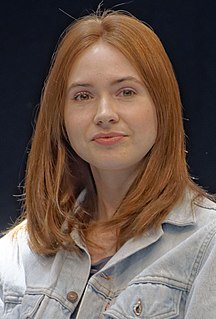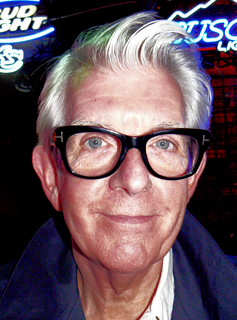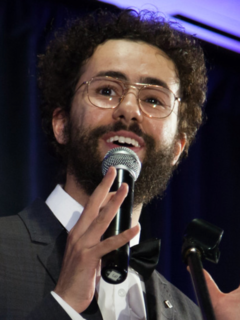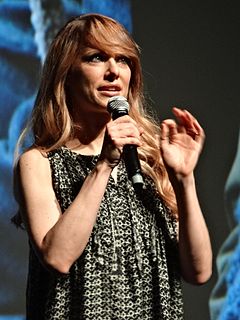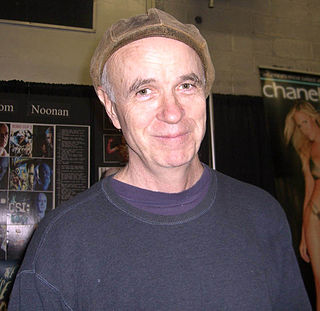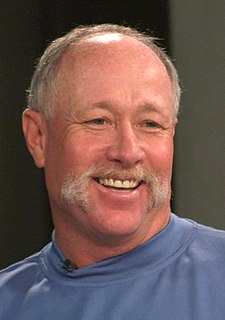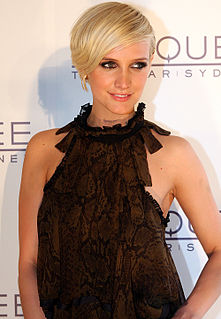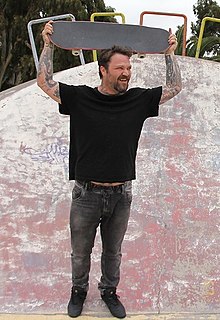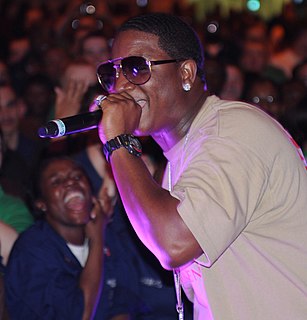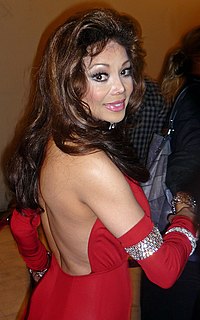A Quote by Karen Gillan
I was one of those weird children that just couldn't talk to people, so I kind of had to make myself be not like that because I knew it was going to hinder me.
Related Quotes
I think I kind of approached music with this sort of, like, weird thing where I kinda set myself up where I could kinda be myself but not really. I kinda had a backdoor out. So if you criticized me, I kinda had my defenses working. And the problem is that some people seize on that as inauthenticity, which is understandable. So that's painful because it's not that you're being inauthentic...there's a difference between being a poseur and being someone who's so emotionally challenged they're kind of just doing their best to show you what they've got.
We talk a lot about our identities, and we talk a lot about working to clear misconceptions about those identities. But it'd be really cool to see someone like myself not even have to talk about being Muslim or Egyptian, because it's just understood. We can all just be weird and not have to explain everything.
We're all flawed, and we all make mistakes, and we all have weaknesses. And those are the kind of people I want to see onscreen, the ones that feel like real flesh-and-blood human beings and not the weird, whitewashed, Hollywood stand-ins for people with the rough edges sanded off that I can't connect to because they just don't resonate with me.
I don't know if this is the kind of retrospective analysis that people are fond of applying to their work or actions, but it feels like I knew I was going to be famous and I knew that an element of that would be traumatic, so that if I could make myself something big and otherworldly, it would be a kind of defence.
. . . the whole idea of WHAT HAPPENED WAS.... is not about dating. It is more about people who are not committed to who they are or are indifferent about their life in general, which is how I felt about myself when I wrote it. I had turned 40 and I was unhappy and I wanted to write about that. Dating just became the framework. . . . I like all those fringy, weird, nonverbal, quiet, tiny little things, those powerful interchanges between people, things that go unsaid, that people know are happening all the time but nobody wants to talk about. That's what I want to make movies about.
The first year was weird. I knew I was just there to talk to pitchers and not step on any toes. I could feel my adrenaline start to flow in about the sixth inning. I had to tell myself, "What the hell are you getting excited about? You're not going anywere, big boy. Just go sign some autographs." I was still programmed.
I knew that people were going to talk about it, I knew it was embarrassing, and I knew it was a big deal. But did I think that it was going to be this thing that followed me for, you know, the next years to come? I guarantee you, 25 years from now, I'll be known as the girl that lip synced on 'SNL.' But, you know, it was a weird thing. Not fun.
Because I had children relatively late - in my 40s rather than in my 20s - it wasn't anything I ever knew that I would do. It kind of happened to me: I met the right woman and we had children. It was a revelation because it suddenly makes me realize "Oh, I get it. Now I know what to do with the rest of my life."
Because I had children relatively late - in my 40s rather than in my 20s - it wasn't anything I ever knew that I would do. It kind of happened to me: I met the right woman and we had children. It was a revelation because it suddenly makes me realize, 'Oh, I get it. Now I know what to do with the rest of my life.'
I started to make a joke that I had an imaginary friend underneath the let-out couch named Binky. I would never talk to him; I would only use him as entertainment for other people. I knew they thought that children had imaginary friends, so I was like, "I don't really believe in imaginary friends, but I want to feel like I do." I used to make a joke, "My imaginary friend Binky says this," because I knew it would get a laugh out of them.
See, because I played behind the scenes so much I already knew what to expect. So I started getting myself ready. I was creating work for myself to do. People were telling me to take a rest and saying "damn, you already acting like you going on MTV or something." In my mind I was because I knew it was what I'd have to do in the near future.
